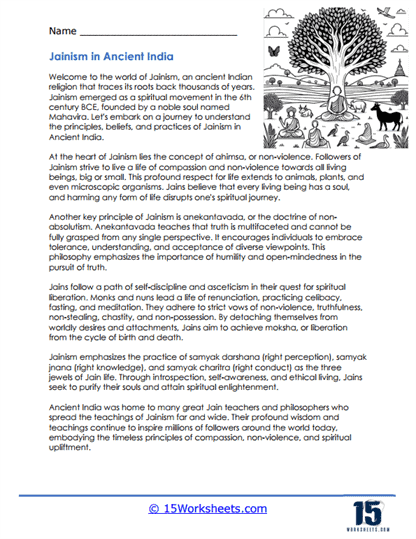Exploring Jain Principles

Worksheet Description
This worksheet provides an overview of Jainism, an ancient Indian religion that has thrived for thousands of years on the principles of non-violence, self-discipline, and spiritual purity. It describes the emergence of Jainism as a distinct spiritual movement in the 6th century BCE, focusing on its foundational tenets, such as the pursuit of ahimsa (non-violence) and the practice of renunciation. The text delves into the Jain concept of anekantavada, which acknowledges the multiplicity of truths, and explains the path of liberation that Jains seek through strict ethical living and contemplation.
The worksheet is designed to teach students about the core beliefs and practices of Jainism, illustrating how this religion promotes a way of life that is deeply respectful of all forms of life and the environment. It educates students on Jain doctrines like ahimsa, anekantavada, and aparigraha (non-attachment), fostering an understanding of how these principles guide Jains toward spiritual enlightenment. Additionally, the material highlights the importance of self-discipline and meditation in Jainism, encouraging students to think critically about ethical living and spiritual growth. Through this lesson, students can gain insight into how the Jain tradition contributes to the broader tapestry of world religions and philosophies.
